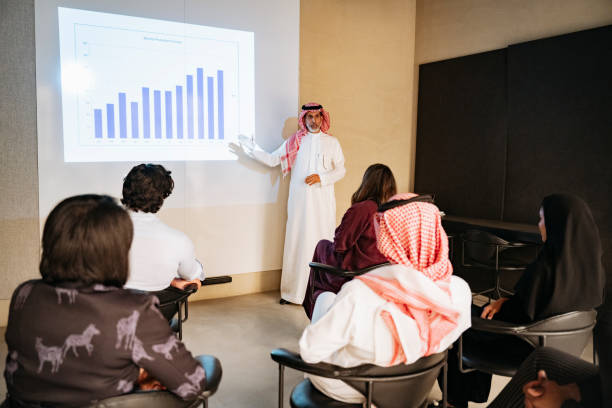Unveiling Scholarship Opportunities to Study Islam in Saudi Arabia
Islam holds immense significance in Saudi Arabia, the birthplace of the religion. Studying Islam in Saudi Arabia presents an unparalleled opportunity to delve deep into its rich history, diverse scholarly traditions, and contemporary practices. This comprehensive guide explores prominent scholarship options for international students seeking to enhance their Islamic knowledge in the heart of the Islamic world.
Advertisements
The Islamic Landscape in Saudi Arabia:
- Cradle of Islam: Saudi Arabia is home to the holiest sites in Islam, Makkah and Madinah, attracting millions of pilgrims annually.
- Diversity of Islamic Scholarship: Saudi Arabia boasts a rich scholarly tradition with various schools of Islamic thought represented by renowned institutions and scholars.
- Emphasis on Quran and Sunnah: Islamic studies in Saudi Arabia emphasize a foundational understanding of the Quran and the teachings of Prophet Muhammad (PBUH) as narrated through authentic hadiths.
Prominent Scholarship Programs for Islamic Studies:
King Abdullah University Scholarship Program: King Abdulaziz University (KAU) offers scholarships for undergraduate and postgraduate studies in Islamic Studies. These scholarships cover tuition fees, monthly stipends, accommodation, and healthcare.
- Eligibility: Merit-based, with a strong emphasis on academic excellence in relevant Islamic studies disciplines.
- Focus: Programs delve into Islamic theology, Quranic studies, Islamic jurisprudence, and Islamic history.
- Application Process: Applications are submitted through the dedicated KAU scholarship portal.
Islamic University of Madinah Scholarships: The prestigious Islamic University of Madinah offers fully-funded scholarships for international students pursuing undergraduate degrees in Islamic Studies.
- Eligibility: Open to male Muslim students with a strong academic background and a commitment to Islamic scholarship.
- Focus: The curriculum emphasizes the Quran, Sunnah, Islamic jurisprudence, Arabic language, and Islamic sciences.
- Application Process: Applications are submitted through the university’s online application portal.
Imam Muhammad ibn Saud Islamic University Scholarships: This university offers scholarships for undergraduate and postgraduate programs in various Islamic disciplines.
- Eligibility: Open to qualified international students, with specific requirements varying by program.
- Focus: Programs cover Islamic theology, Quran and Sunnah studies, Islamic law, Arabic language, and Islamic history.
- Application Process: Applications are submitted through the university’s online application portal.
Government Scholarships for Islamic Studies: The Saudi Arabian Ministry of Education also offers scholarships for Islamic studies, focusing on promoting Islamic knowledge and fostering cultural exchange. Details and application procedures can be found on the Ministry’s website.
These are just a few examples, and numerous other universities and institutions in Saudi Arabia offer scholarships for Islamic studies. Thorough research is recommended to identify programs that align with your specific academic interests and qualifications.
Advertisements
Choosing the Right Scholarship: A Strategic Approach:
Matching Your Aspirations:
- Specialization: Consider your area of interest within Islamic studies, such as Quranic studies, Islamic law (Fiqh), or Islamic history.
- Program Level: Determine if you are seeking an undergraduate degree (bachelor’s) or a postgraduate degree (master’s or Ph.D.).
- Language Requirements: Most programs require fluency in Arabic. Consider pursuing Arabic language study before applying or enrolling in programs with preparatory Arabic language courses.
Eligibility Criteria:
- Academic Background: Ensure you meet the minimum GPA requirements and any necessary standardized test scores (if applicable).
- Prior Islamic Knowledge: Some programs might require prior knowledge of Islamic studies or Arabic language proficiency.
- Gender Considerations: While some universities offer co-educational programs, many Islamic studies programs in Saudi Arabia are single-sex. Be mindful of these considerations when selecting your preferred institution.
Additional Considerations:
- University Reputation: Research the academic standing and faculty expertise of the universities offering scholarships.
- Program Curriculum: Evaluate the program’s curriculum, faculty research interests, and available resources to ensure alignment with your academic goals.
- Cultural Considerations: Researching Saudi Arabia’s cultural norms and social customs allows for a smoother transition and facilitates a more enriching academic experience. Additionally, consider the availability of support services for international students at the chosen university.
Beyond Scholarships: Additional Funding Options:
- University Financial Aid: Some universities offer financial aid programs in the form of tuition waivers, assistantships, and part-time work opportunities for international students pursuing Islamic studies.
- International Islamic Organizations: Organizations like the Islamic Development Bank (IsDB) offer scholarships for Islamic studies, focusing on fields like Islamic finance, Islamic education, and development-oriented projects with an Islamic perspective.
The Islamic Studies Experience in Saudi Arabia:
- Immersion in Islamic Culture: Studying Islam in Saudi Arabia provides an unparalleled opportunity to immerse yourself in the rich Islamic culture and traditions. Exposure to historical sites like the holy cities of Makkah and Madinah fosters a deeper connection to the religion’s birthplace and formative period. Engaging with Islamic art, architecture, and calligraphy allows you to appreciate the artistic expressions of Islamic faith throughout history.
- Traditional Modes of Islamic Learning: Saudi Arabia continues the legacy of traditional Islamic scholarship, where students engage in direct learning from established scholars through a system known as “halaqah.” This allows for personalized guidance, in-depth discussions of Islamic texts, and the transmission of knowledge directly from teachers to students.
- Intercultural Dialogue and Understanding: Studying with a diverse student body from across the Muslim world fosters intercultural dialogue and understanding. Engaging with scholars and students from different Islamic traditions and backgrounds broadens your perspective on Islamic thought and practice.
- Arabic Language Development: Saudi Arabia provides a natural environment to refine your Arabic language skills, crucial for accessing Islamic texts and scholarly resources in their original form. Universities often offer intensive Arabic language programs alongside Islamic studies, equipping you with the linguistic tools for deeper engagement with the subject matter.
- Practical Applications of Islamic Knowledge: Many programs integrate theoretical knowledge with practical applications. Courses on Islamic finance, Islamic law in contemporary contexts, and Islamic education methodologies equip graduates with relevant skills for careers in Islamic banking, legal practice, or Islamic education institutions.
Career Opportunities After Studying Islam in Saudi Arabia:
- Islamic Scholarship and Research: For those with a passion for research and teaching, postgraduate degrees can lead to careers as professors at universities, researchers at Islamic institutes, or Islamic studies specialists at research centers.
- Imams and Religious Leaders: Scholarship programs might prepare graduates for careers as imams leading prayers and delivering sermons in mosques, or as religious leaders serving Muslim communities.
- Islamic Education: Graduates with expertise in Islamic education methods can pursue careers as teachers in Islamic schools, curriculum developers, or educational administrators within Islamic educational institutions
- Islamic Banking and Finance: Scholarships focusing on Islamic finance equip graduates with the knowledge and skills to work in Islamic banks and financial institutions, contributing to the development of this growing sector.
- Government and NGO Work: Graduates with a strong understanding of Islamic law and ethics might find opportunities working in government agencies or NGOs dealing with issues related to Islamic affairs, social development, or humanitarian work within an Islamic framework.
- Media and Communications: Islamic media outlets and communication channels increasingly require individuals with expertise in Islamic studies to create informative and engaging content. Scholarships might provide a pathway to careers in Islamic media production, content creation, or communication roles within Muslim communities.
Advertisements






